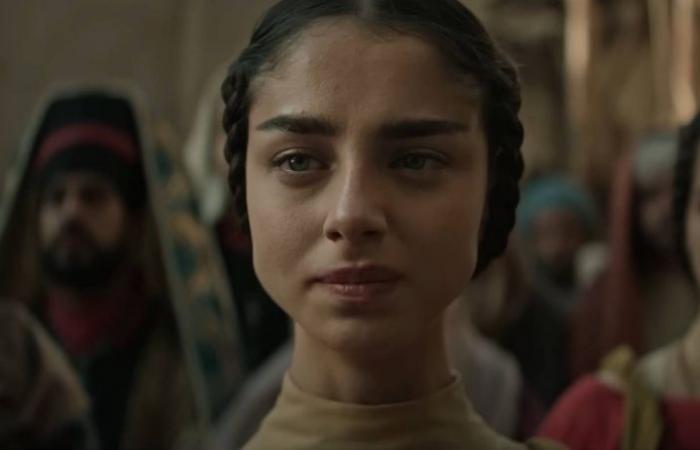Usually, Christmas films are unanimous. But the one announced by the Netflix platform a week ago divides even before its release. Released on November 12, the trailer for Maryan American fiction inspired by the Bible and centered on the life of the Virgin Mary, creates controversy due to a casting mainly composed of Israeli actors.
The video, however, aims to be a classic concentration of American blockbusters: dramatic music, a heroine facing a clearly identified villain, King Herod played by Anthony Hopkins, ready to kill all the children to prevent the coming of the Messiah. The mother of Christ, played by the young Noa Cohen, braves the jeers of the king’s men to give birth to Jesus.
“Insult to Christians”
Numerous reactions from enthusiastic Internet users rained down under the video: “Exactly what we need for Christmas! “, ” I’m eager to ! “… But others denounce the presence of numerous Israeli actors in the casting: Noa Cohen in the title role, Ido Tako in Joseph or even Ori Pfeffer in Joachim, Marie’s father. Other Israeli actors appear in the cast.
“If Mary gave birth to Jesus today in the Palestinian town of Bethlehem, they would probably be arrested and targeted at a checkpoint manned by Noa Cohen and all his Israeli costars,” says a user on is such an insult to Christians, while Israel is committing genocide and bombing churches,” denounces another, with an often used hashtag: #BoycottNetflix.
The 21-year-old actress who plays Marie also starred in the series 8200, released in 2024 and focusing on the famous intelligence unit of the Israeli army, whose bases are regularly targeted by Hezbollah in its war against Israel.
On social networks, discussions emerge from the reactions of Internet users. “But Jesus and Mary were Jewish, I don’t see what the problem is,” says one. – Jews yes, Israelis no,” retorts an Internet user, emphasizing the distinction between religion and nationality.
Censorship possible in Lebanon?
Other media like The New Arab et Middle East Eye report an “erasure of Palestinian voices” and recall that the streaming platform has already been at the center of this type of criticism, on similar themes. A month ago, Netflix was accused of removing the vast majority of a collection of 32 films, called “Palestinian Stories” and exploring life under Israeli occupation. Some claimed that these films would have been removed between October 14 and 15, 2024 “under pressure from Zionist lobbies” in the midst of the escalation of the war in Gaza.
What about Lebanon, a country accustomed to this type of controversy, particularly during cinema releases? “Censorship seems unlikely to me, because it is a platform and not a film broadcast in theaters,” said Jad Chahrour, media manager of the SKeyes center. “From a purely technical point of view, the Ministry of Culture or the authorities of the censorship committee could ask Netflix to remove the film… Which has never happened to my knowledge,” he specifies. , noting that the subject is not overly controversial in the Land of Cedar. Contacted by The Orient-The Day, General Security, responsible for the censorship committee, did not respond to our requests.
This is not the first time that Netflix has found itself at the center of a campaign calling for its boycott. In addition to the affair of the withdrawn Palestinian films, the series Messiah released in 2020 also caused a lot of ink to flow. It featured a prophet in our current world, in Syria, guiding residents of Damascus frightened by the jihadist group Islamic State and bringing them across the Israeli border. A petition then circulated on social networks and denounced “evil and anti-Islamic propaganda. »
Usually, Christmas films are unanimous. But the one announced by the Netflix platform a week ago divides even before its release. Released on November 12, the trailer for Mary, an American fiction inspired by the Bible and centered on the life of the Virgin Mary, creates controversy due to a casting mainly composed of Israeli actors. The video is… .
- -





